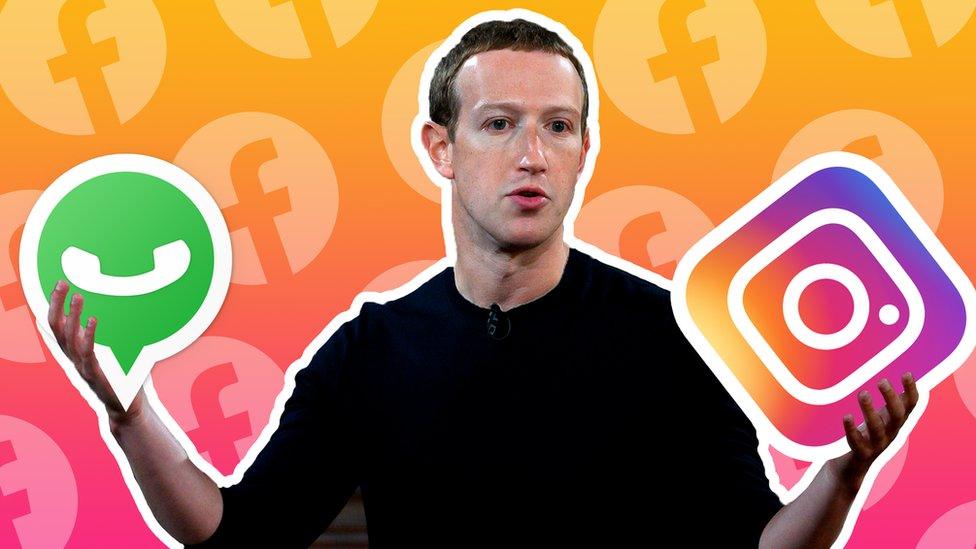Tech Tent: Breaking up Facebook
- Published

In a landmark lawsuit, US regulators have accused Facebook of buying up rivals in order to stifle competition.
They have made it clear they will seek a drastic remedy - the sale of Instagram and WhatsApp. On this week's Tech Tent we ask whether it is really likely that the social media giant's empire will be dismantled.


New York Attorney General Letitia James could hardly have been clearer in her denunciation as she outlined the case she and more than 45 other state and federal regulators are bringing against Facebook.
"For nearly a decade, Facebook has used its dominance and monopoly power to crush smaller rivals, and snuff out competition, all at the expense of everyday users," she said.
'A key moment'
Among the remedies the regulators are seeking from the courts for what they describe as Facebook's "buy or bury" strategy towards potential rivals are "the divestiture or restructuring of illegally acquired companies".
And that could mean selling off Instagram, bought for $1bn in 2012 when it had just 13 employees, and WhatsApp, for which it paid $16bn - which seemed an outlandish price in 2014.
Since that purchase, the price of Facebook shares has risen more than fourfold, and the company is now worth nearly $800bn.
"This is a key moment," Damian Collins, the British MP who chaired a parliamentary inquiry severely critical of Facebook, tells Tech Tent.
"It was always going to take leadership by the authorities in America to bring the anti-trust case against Facebook and to make the case for some form of separation of the different businesses."
Mr Collins believes some of the documents uncovered during his select committee inquiry provided evidence reinforcing the US regulators' case.
"What these documents showed was how Facebook used its market power to put pressure on other companies to do deals on data that favoured Facebook; to give privileged access to data to companies that were important to Facebook and spent a lot of money with them; how it used data to analyse the apps people use, so it could determine which apps were potentially a threat."
But Facebook has made it clear it will mount a fierce legal battle against any moves to break it up.
Because its purchases of WhatsApp and Instagram were not blocked by regulators at the time it's accusing the government of wanting "a do-over", which will harm the broader business community.
And one leading expert on competition regulation tells Tech Tent he thinks Facebook will probably avoid a break-up.
'Politics, not law'
"The US Supreme Court has been very sceptical about monopoly cases," says John Fingleton, former head of the UK's Office of Fair Trading. He watched the regulators outlining their case with some scepticism.
"Saying that they want to break up the business before they get through the court process seemed to me to be more about the politics of it than about the economics and the law."
Still, both John Fingleton and Damian Collins believe that a long legal battle will have an impact on the way Facebook and others do business. The MP hopes the social media giant will now be unable to buy or squash smaller rivals and that will mean more innovation.
And the competition expert says the case shows a major shift in US competition policy, which has previously focused solely on the immediate impact on consumers in the form of higher prices.
"In the last 30 or 40 years," says Mr Fingleton, "we've seen competition has been about protecting consumers, not protecting competitors. But a lot of the cases one sees more recently have much more of a flavour of protecting competitors."
Perhaps what happened in a previous clash between a US tech giant and the regulators is a foretaste of what will happen to Facebook.
Microsoft spent many years fighting the US Department of Justice which wanted to break it up.
It avoided that outcome, but the world moved on and the software giant, no longer seen as an anti-competitive menace, is thriving without attracting much attention from the regulators.
Facebook may hope that history repeats itself.
Related topics
- Published9 December 2020

- Published11 December 2020

- Published1 July 2020

